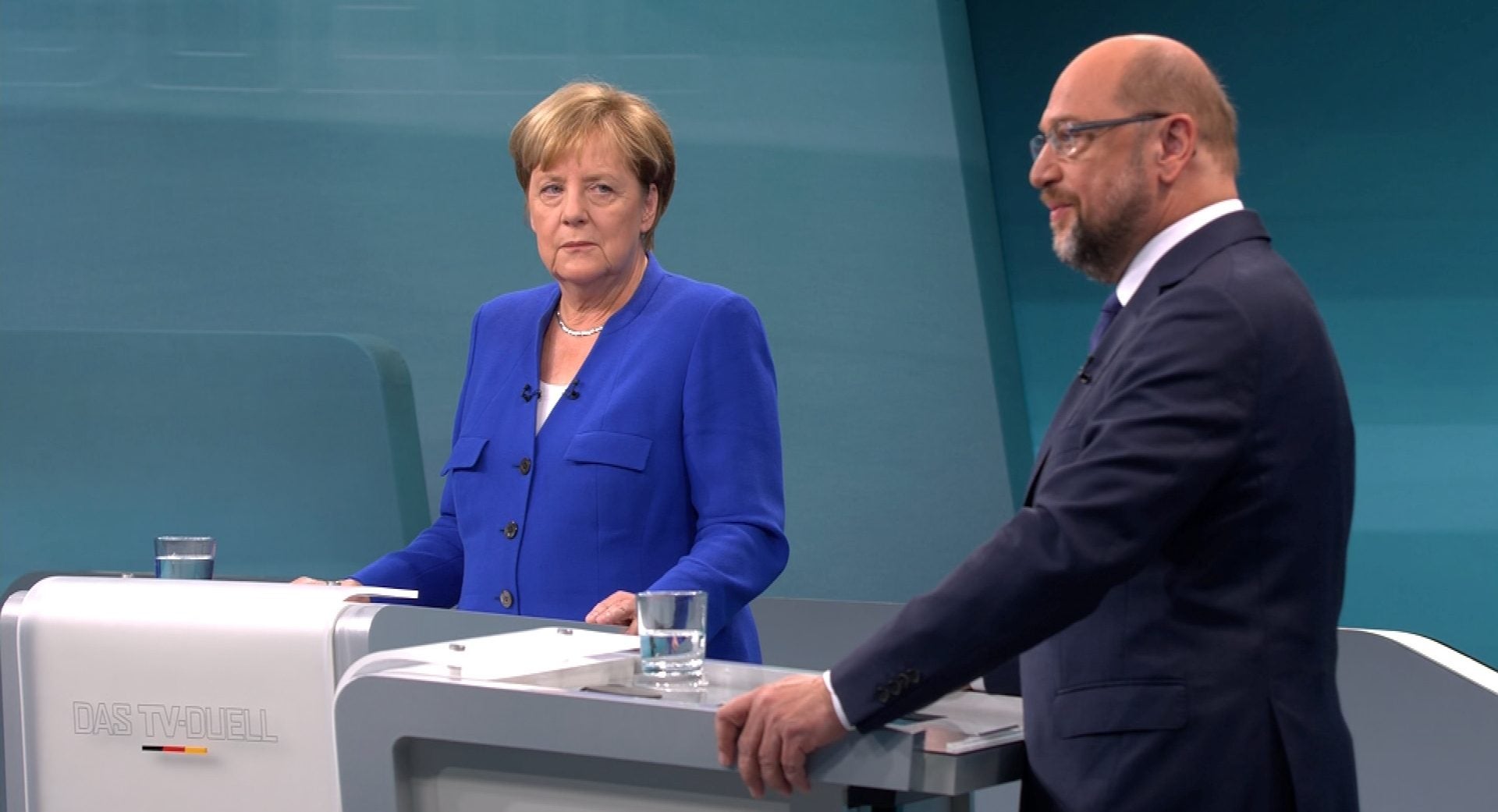Trump’s “fire and fury” on North Korea is prompting concerned offers of help from Europe
Donald Trump’s bluster over North Korea plays well with some of the Americans who voted for him. The US president has refused to rule out military action in North Korea, made dramatic threats against Pyongyang (including one of “fire and fury“), and tweeted that “talking is not the answer” for reining in the nation’s alarmingly fast weapons development.


Donald Trump’s bluster over North Korea plays well with some of the Americans who voted for him. The US president has refused to rule out military action in North Korea, made dramatic threats against Pyongyang (including one of “fire and fury“), and tweeted that “talking is not the answer” for reining in the nation’s alarmingly fast weapons development.
But that doesn’t go over as well in Europe. German chancellor Angela Merkel believes that talks with North Korea are, in fact, the way forward. The 2015 nuclear agreement between Iran and world powers could serve as a model for negotiations, she said in an interview with the Frankfurter Allgemeine Sonntagszeitung published yesterday (link in German), adding her country would be eager to help in such talks. In the 2015 deal, after years of negotiations, Iran agreed to curb its nuclear work in return for the lifting of most sanctions.
That followed Merkel debating her election rival, Martin Schulz, on live TV on Sept. 3. (Germans go to the polls on Sept. 24.) While they disagreed on much, they sounded similar notes of alarm over the US president’s approach to North Korea.
Schulz, leader of the Social Democratic Party, said Trump is ”not the right person to solve this conflict… The problem we have with Trump is that he is unpredictable… we never know when he will tweet next time.”
Merkel, while saying the US had a key role to play in any solution with North Korea, offered little disagreement. ”I don’t think we can solve this without the US president, but we will only consider a peaceful, diplomatic solution… We need the US as a power for peace, and we need to do everything possible to get them on the right and sensible path.”
While many European leaders agree with the Trump administration that tougher sanctions are needed to apply more pressure on the regime of Kim Jong-un, the end game is usually negotiations with Pyongyang.
François Delattre, France’s ambassador to the UN, said last week to CBS News, “The stronger the sanctions we impose on North Korea, the stronger our hand in promoting a political solution.” And Britain’s UN ambassador, Matthew Rycroft, told CBS his nation “wants a robust further sanctions resolution to give a chance for diplomacy to end this crisis.”
British defense minister Michael Fallon also called for talking. “We are doing now what we can to bring about a diplomatic solution, what we have to avoid at all costs is this spilling over in to any kind of military conflict,” he told BBC yesterday. While the US has the right to defend itself, he said, “This involves us. London is closer to North Korea and its missiles than Los Angeles. We have to get this program halted because the dangers now of miscalculation, of some accident triggering a response are extremely great.”